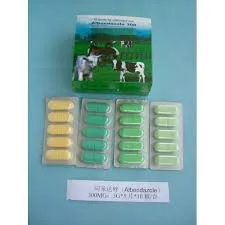- Afrikaans
- Albanian
- Amharic
- Arabic
- Armenian
- Azerbaijani
- Basque
- Belarusian
- Bengali
- Bosnian
- Bulgarian
- Catalan
- Cebuano
- Corsican
- Croatian
- Czech
- Danish
- Dutch
- English
- Esperanto
- Estonian
- Finnish
- French
- Frisian
- Galician
- Georgian
- German
- Greek
- Gujarati
- Haitian Creole
- hausa
- hawaiian
- Hebrew
- Hindi
- Miao
- Hungarian
- Icelandic
- igbo
- Indonesian
- irish
- Italian
- Japanese
- Javanese
- Kannada
- kazakh
- Khmer
- Rwandese
- Korean
- Kurdish
- Kyrgyz
- Lao
- Latin
- Latvian
- Lithuanian
- Luxembourgish
- Macedonian
- Malgashi
- Malay
- Malayalam
- Maltese
- Maori
- Marathi
- Mongolian
- Myanmar
- Nepali
- Norwegian
- Norwegian
- Occitan
- Pashto
- Persian
- Polish
- Portuguese
- Punjabi
- Romanian
- Russian
- Samoan
- Scottish Gaelic
- Serbian
- Sesotho
- Shona
- Sindhi
- Sinhala
- Slovak
- Slovenian
- Somali
- Spanish
- Sundanese
- Swahili
- Swedish
- Tagalog
- Tajik
- Tamil
- Tatar
- Telugu
- Thai
- Turkish
- Turkmen
- Ukrainian
- Urdu
- Uighur
- Uzbek
- Vietnamese
- Welsh
- Bantu
- Yiddish
- Yoruba
- Zulu
12 月 . 03, 2024 16:44 Back to list
tylosin injection in poultry
Tylosin Injection in Poultry An Overview
Tylosin is a macrolide antibiotic that is widely used in veterinary medicine, particularly in the poultry industry. This antibiotic is primarily employed to treat and prevent various bacterial infections in birds, ensuring their health and productivity. The use of tylosin injection in poultry has become increasingly popular due to its effectiveness against a range of pathogens, including those responsible for respiratory and enteric diseases.
Mechanism of Action
Tylosin works by inhibiting bacterial protein synthesis, which is crucial for the growth and reproduction of bacteria. By binding to the 50S subunit of the bacterial ribosome, tylosin disrupts the process of translation, effectively stalling bacterial growth. This mechanism of action makes tylosin particularly effective against Gram-positive bacteria and some Gram-negative organisms, which are commonly implicated in infections affecting poultry.
Indications for Use
Tylosin is typically indicated for the treatment of specific bacterial infections such as Mycoplasma gallisepticum, which causes chronic respiratory disease in chickens, and other conditions that may lead to increased mortality or decreased productivity. Additionally, tylosin can help control necrotic enteritis, a significant issue in poultry caused by Clostridium perfringens. Timely intervention with tylosin can significantly reduce the impact of these diseases, improving flock health and sustainability.
Administration and Dosage
Tylosin can be administered via injection or incorporated into the feed and water. The injectable form is often preferred in acute cases where a rapid therapeutic effect is required. The dosage of tylosin varies depending on the specific condition being treated, the age of the poultry, and the severity of the infection. It is essential for veterinarians to adhere to recommended dosages and treatment regimens to avoid potential side effects and ensure that the antibiotic remains effective.
tylosin injection in poultry

Benefits of Tylosin in Poultry Production
The use of tylosin injections brings several benefits to poultry production. Firstly, it helps reduce the economic losses associated with disease outbreaks by decreasing morbidity and mortality rates. Healthy birds are more productive, leading to higher growth rates and better feed conversion, ultimately enhancing profitability for poultry producers.
Furthermore, tylosin's effectiveness in controlling infections can lead to improved animal welfare. By managing disease effectively, tylosin helps ensure that poultry can grow in a healthy environment, free from the stresses of illness. This focus on animal welfare is becoming increasingly important in modern agricultural practices.
Concerns and Considerations
Despite the advantages of tylosin, there are growing concerns regarding antibiotic use in agriculture. The potential for the development of antibiotic resistance is a significant issue that farmers and veterinarians must consider. Overuse or misuse of antibiotics can lead to resistant strains of bacteria, which can compromise both animal and human health. To mitigate this risk, it is crucial to implement strict biosecurity measures, rotate antibiotics, and use alternatives when possible.
Conclusion
Tylosin injection plays a vital role in maintaining the health and productivity of poultry flocks. Its effectiveness against various bacterial infections has made it a valuable tool in veterinary medicine. However, responsible use is essential to prevent antibiotic resistance and ensure the long-term sustainability of poultry production. As the poultry industry continues to evolve, the challenge remains to balance the benefits of antibiotic use with the necessity of preserving antibiotic efficacy for future generations. By adhering to best practices and remaining mindful of the challenges associated with antibiotic use, poultry producers can continue to provide safe and healthy products while protecting the welfare of their animals.
-
The Power of Radix Isatidis Extract for Your Health and Wellness
NewsOct.29,2024
-
Neomycin Sulfate Soluble Powder: A Versatile Solution for Pet Health
NewsOct.29,2024
-
Lincomycin Hydrochloride Soluble Powder – The Essential Solution
NewsOct.29,2024
-
Garamycin Gentamicin Sulfate for Effective Infection Control
NewsOct.29,2024
-
Doxycycline Hyclate Soluble Powder: Your Antibiotic Needs
NewsOct.29,2024
-
Tilmicosin Premix: The Ultimate Solution for Poultry Health
NewsOct.29,2024













